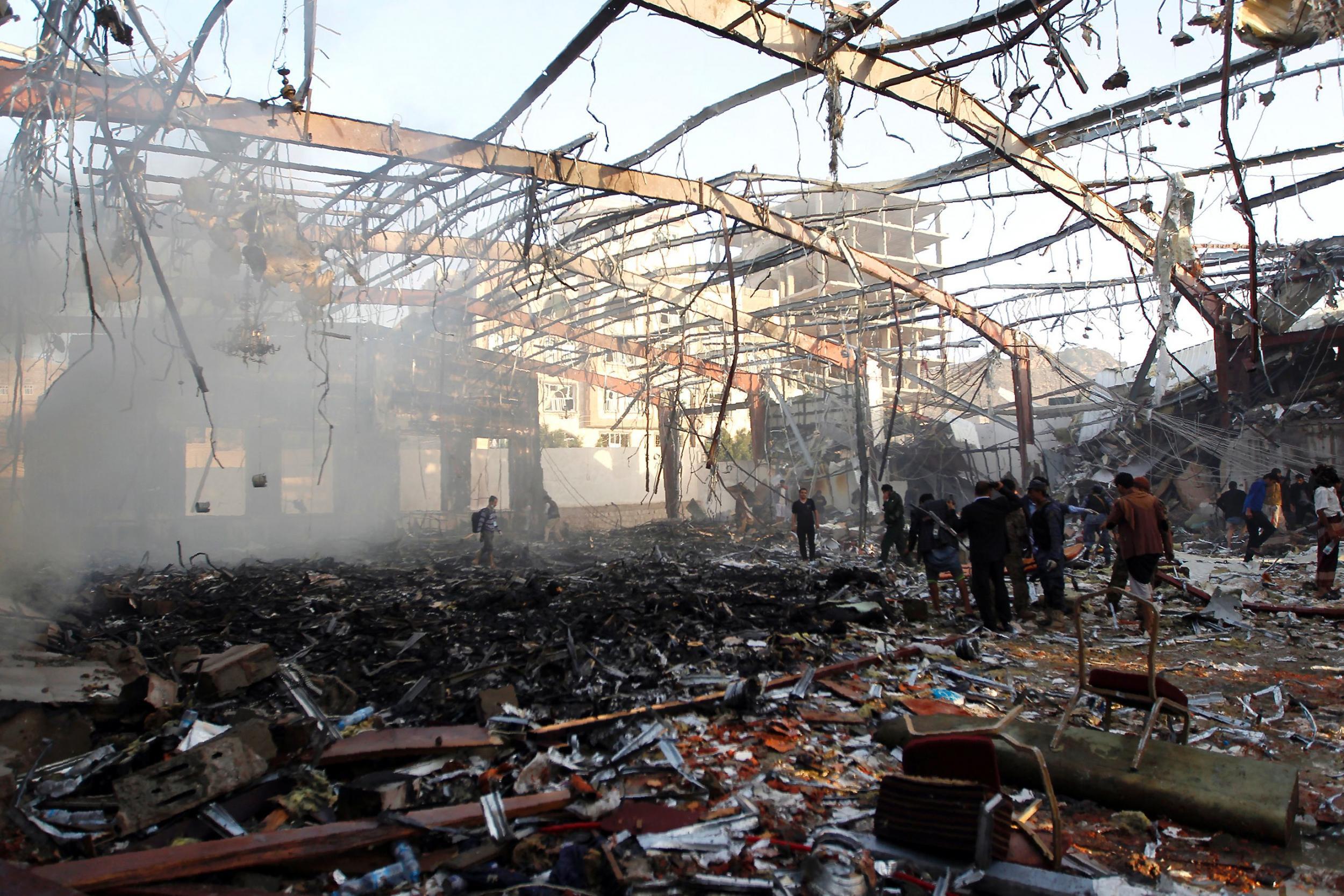UK sells £1.1bn worth of arms and military kit to Saudi Arabia in first half of 2017
Britain continues to sell arms to Riyadh despite widespread outrage over its conduct in Yemen

Your support helps us to tell the story
From reproductive rights to climate change to Big Tech, The Independent is on the ground when the story is developing. Whether it's investigating the financials of Elon Musk's pro-Trump PAC or producing our latest documentary, 'The A Word', which shines a light on the American women fighting for reproductive rights, we know how important it is to parse out the facts from the messaging.
At such a critical moment in US history, we need reporters on the ground. Your donation allows us to keep sending journalists to speak to both sides of the story.
The Independent is trusted by Americans across the entire political spectrum. And unlike many other quality news outlets, we choose not to lock Americans out of our reporting and analysis with paywalls. We believe quality journalism should be available to everyone, paid for by those who can afford it.
Your support makes all the difference.British sales of military equipment to Saudi Arabia have topped £1.1bn in just six months, according to Government figures.
The latest statistics released by the Department for International Trade (DIT) showed the UK sold £836m of arms and military hardware to Saudi Arabia between April and June – up from £280m between January and March.
The UK’s sale of weapons to the kingdom has been condemned by campaigners and the Labour party as its bombing campaign against Yemen continues.
Around 10,000 people have died in the two-and-a-half-year conflict between a Saudi-led Arab coalition and the Iran-allied Houthi movement, which ousted Sunni President Abdrabbuh Mansur Hadi from power in Sanaa in 2012.
Schools, hospitals and food factories have been repeatedly hit in a conflict which has been described by the United Nations as a “humanitarian catastrophe”.
But the UK Government has repeatedly defended its decision to continue sending arms to the country.
In October last year Saudi Arabia admitted to dropping two bombs on a funeral in Sanaa, killing 140 people and wounding 600 others, saying they received faulty intelligence that Houthi rebel leaders were in the packed hall.
It initially denied it was behind the bombing.
In a letter dated 8 November 2016, Foreign Secretary Boris Johnson wrote to Trade Secretary Liam Fox that the bombing was not a reason to stop selling bombs to Riyadh.
He said that the incident did not meet the criteria for them to suspend arms sales and was not in violation of international humanitarian law.
This followed the revelation that the Government’s own head of the Export Control Organisation had previously told then-Business Secretary Sajid Javid it would be “prudent and cautious” to suspend sales.
Mr Fox is responsible for renewing export licences for the hardware, which include air-to-air missiles, aircraft components, sniper rifles, anti-riot gear, ballistic shields and body armour.
A government spokesman told The Guardian: “The UK government takes its export responsibilities very seriously and operates one of the most robust export control regimes in the world.
“We rigorously examine every application on a case-by-case basis against the consolidated EU and national arms export licensing criteria, and have suspended or revoked licences when the level of risk changes.”
Join our commenting forum
Join thought-provoking conversations, follow other Independent readers and see their replies
Comments